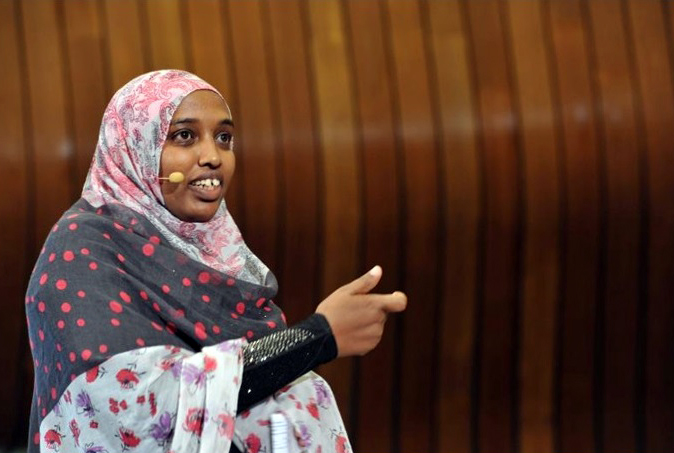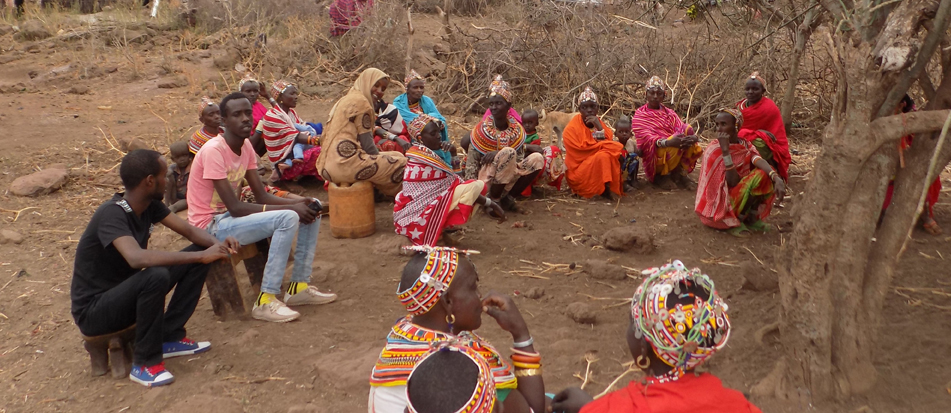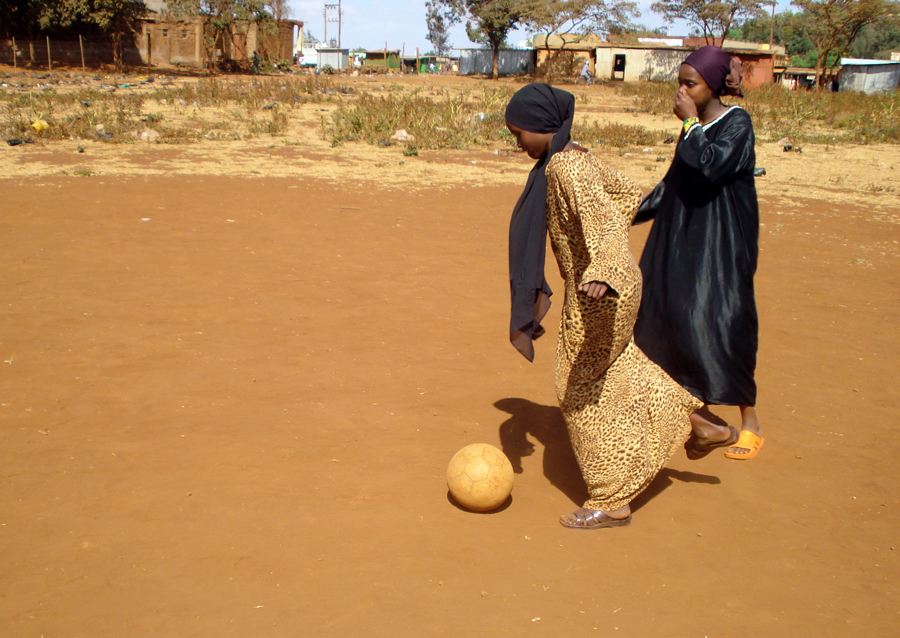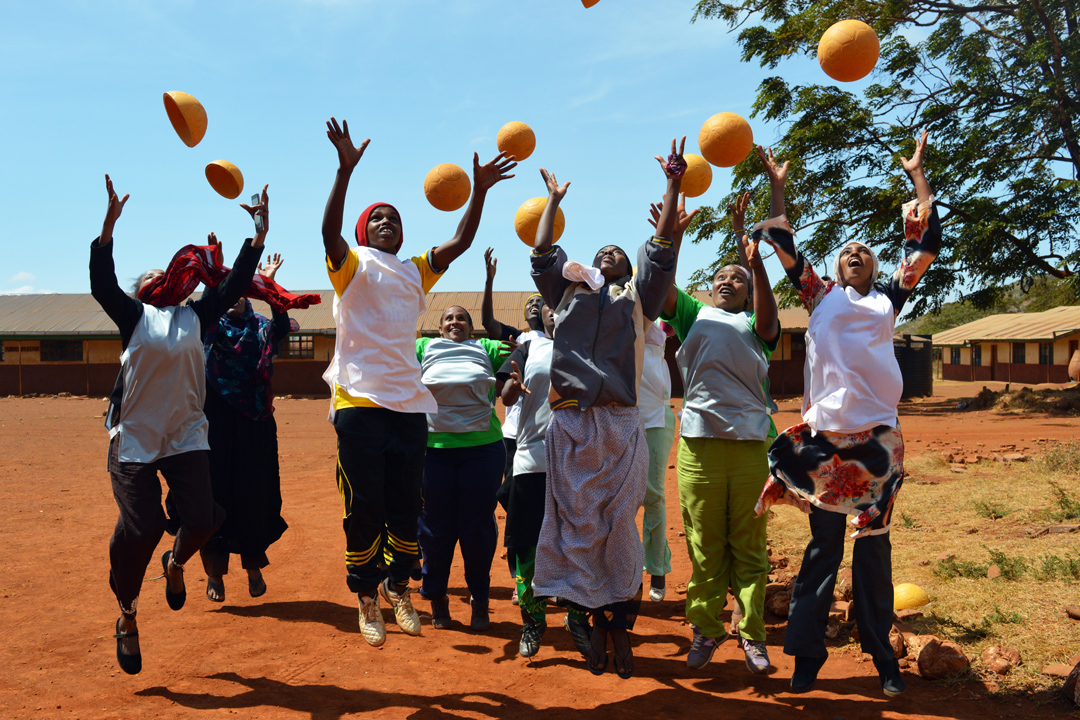A leader in Kenya relives her experience with FGM and examines what it will take to end the deep-rooted, dangerous practice.
It’s hard to look away and hope that #FGM will not be a topic of discussion on literally every TV station and radio station on February 6—the day the United Nations observes International Day of Zero Tolerance for Female Genital Mutilation. The outcry on social media is immense, too. How I wish FGM would be an everyday agenda, an everyday talk.
What is very Kenyan is we literally run short races with issues, and, soon, we will run out of breath. Then, we will be falling on the roadside and forgetting we ever talked about it. The issue will be packed away until next time, when there is another Zero Tolerance Day, or another big FGM story. I wish we would run the full race. I wish we would do as our famous Kenyan runners do; run a marathon until we win the fight against FGM.

Back home where I am from, a small town in northern Kenya called Marsabit, FGM happens day and night. A friend told me some political leaders even fund the cut. At home, it is a taboo to even talk about FGM. Until recently, we called it Qaban Qaba, which means “holding down” or “pinning down.” That’s what happens—you are literally held down by a strong woman while someone cuts you. FGM is sacred back home. FGM is not openly discussed back home; mentioning the cut makes people very uncomfortable.
When it happened to me, I was held down by my own mum.
I have nothing against my ayyo. I love her to the moon and back. She did what she thought was the best for her daughter like many other mothers in Marsabit. She removed a part of me that was considered dirty; that she thought would turn me into a woman with loose morals if it remained.
I sat down with ayyo, and the conversation we had was not, “Why did you do this to me?” It was a conversation to understand her point of view. Our conversation informed my campaign #BreakingtheSilence on FGM, early marriage, and rape ‘beading.’
My mum has never gone to a school; many would call her illiterate. But she is knowledgeable. She raised me and my other siblings with tough love. She also treated me and my brother as equals. We shared all chores equally, including cooking, cleaning, and washing clothes and utensils. We had shifts, and it is here I learned: There is no difference between the sexes. This lesson of equality, which took root in my home, is bigger than what any convention or law can achieve. My ayyo knew the value of education and ensured I studied to the highest level. “Kofia nami keyat tan atillen keyad,” my mum used to say. Until you graduate and wear the gown, don’t think of marriage.
I am not just a crusader against FGM. Everything I do personally is for #BreakingtheSilence. There are too many myths and misconceptions around of FGM. Has the law to ban FGM stopped it? What will?
One step at a time, I believe we can make progress. It starts with conversation.
When I speak to most mothers about FGM, fear emerges as a motivating factor for the cut. In too many communities, if a girl isn’t cut, she is considered dirty. Mothers fear their daughters will be ostracized and considered unfit for marriage. No one wants to be cut off from their community. In my conversations, I ask mothers, “What about the law?” Some will ask, “Which law?” They don’t even know it exists.
In many communities, the Anti-FGM Act of 2011 is seen as foreign, as propagating the views and opinions of outsiders. Many wonder, “Why is there a law to stop our culture?” It is question many ask, but in whispers. Others quote the Quran and Sunnah as a basis for continuing the cut. Many say it is the practice of our forefathers, and we cannot stop it now.
But I believe we can.
We need to demystify the law and break it down for people to understand. As long as we cut them off, too, they will continue to mutilate. As long as they are seen as criminals, it will be hard to engage with them. When every woman and every girl has a voice and a choice, the law won’t be the only thing by her side to protect her. She will be able to stand up for herself, and speak up about issues that affect her. Until that day, I will not tire.
I have been cut. I have a scar, but it does not define me. I am not a victim. I have a voice, and I want you to hear me.
Don’t condemn me. I alone fully understand my pain.
Each woman has a different experience with FGM. I still don’t have the courage to watch the cut on film or in real life. I was cut, and I went to high school and off to university. I graduated with a law degree and went back home to #BreaktheSilence on early marriage, rape, and FGM.
In the last 15 years, to succeed in my community development work, I have had to unlearn what I learned in law school. I had to learn new laws, which are based on traditional laws and Islamic Shariah. I had to sit with the elders whose courts are under the tree where not a single woman was allowed until 12 years ago. Today, in 152 villages 60% of those who sit under those trees are women. I was told that was impossible.

Then I came carrying a ball. I wanted girls in Kenyan villages to play football as part of my nonprofit’s work to empower girls. I was told it will break their virginity. I was told it would never happen, not in my home of Marsabit. It took patience and courage to bring girl’s football to Marsabit. One step at a time, one girl at a time, we did it. Today 1,645 girls have played the game through my nonprofit, Horn of Africa Development Initiative (HODI).
Girls are still being cut in Marsabit. In some communities, a woman is cut on her wedding day. She is an adult, but alone, she is voiceless. She may have learned about going to high school and university. She may have learned about the life-threatening effects of FGM or early marriage. But her husband probably wasn’t part of the conversation. Boys are too often not part of the conversation. At HODI, we use football as a tool to break the silence on FGM in Marsabit, northern Kenya. We deliberately build mixed gender football teams, where boys can learn about issues affecting girls. Instead of seeing FGM as a “girl problem,” they fight it together.

Only when brothers stand up for sisters and fathers stand up for daughters will we achieve true change. It cannot just be a girl talk. If I came carrying an anti-FGM banner, I would not have been allowed into the villages of my home. But I didn’t carry a banner. I took one step at a time to win hearts and minds. Unless there is dialogue in every home, in every village, the monster of FGM and gender-based violence will continue to haunt us.
I have one daughter, and I will not cut her because she was born perfect.
Let us have a real conversation now. Each day, we can focus on winning one mother, one sister, one father, one brother. Together, we will save not just one girl, but whole generations to come.

This essay was originally published on Fatuma Abdulkadir Adan’s blog, “Nomad Girl.” She published this abbreviated version in partnership with GlobalGiving. You can read the full essay here.
Support local leaders in the fight to end FGM.
Featured Photo: GlobalGiving partner Global Roots also works to end FGM in Kenya. Photo by Global Roots
Find exactly what you're looking for in our Learn Library by searching for specific words or phrases related to the content you need.